I started reading Jessica Powell's online novel The Big Disruption last week. It's hilarious. And it has a lot to say about the archetypes of software development.
The premise is that the monarch of a fictional country has been exiled to California, where he found work first as a janitor at Stanford and then at a hot startup. He applies to a Google-like company and gets hired—but by accident, as a product manager.
Sample:
Arsyen washed his hands and returned to the cubicle, armed with his new vocabulary.
When Roni asked Arsyen about prioritization, Arsyen asked, “Is this on the roadmap?”
When Sven suggested adding images of attractive women to the car dashboard, Arsyen rubbed his chin.
“Does this align with our strategy?”
When all three looked to him for an opinion in how best to implement Symmetry Enhancement, Arsyen stood and put his hands on his hips.
“Does this align with the strategy on our roadmap?”
No one seemed to notice anything was amiss. If anything, it seemed like product managers just asked questions that other people had to answer.
“Good brainstorm, everyone. Let’s break for lunch,” Roni said. “Oh, and Arsyen, this is still very confidential, so let’s get this whiteboard cleaned off.”
Arsyen jumped up and began to wipe the whiteboard clean as Sven and Jonas scooted their chairs back to their desks. Arsyen was pleased that product managers seemed to have some janitorial tasks in their role. Maybe this wouldn’t be such a stretch after all.
I can't read it at work because I would have to explain why I'm laughing so hard.
I'm not sure how I feel about CH Distillery buying the Malort wormwood liqueur brand:
Since the 1970s, Malort has been distilled in Florida, though its primary market has remained Chicago. Many Malort enthusiasts would agree that the liquor’s powerful aftertaste assaults the taste buds, a phenomenon that’s ironically helped grow the brand’s popularity on social media and in Chicago bars.
Why would Tremaine Atkinson, founder of CH Distillery, want to purchase Malort?
“Oh my gosh, why not? … I love everything about it. I hate everything about it. It’s such a great iconic Chicago thing,” Atkinson said Thursday. “It fits at the psychic level, the business level and the cultural level.”
Atkinson, 54, said he first tried Malort when a friend bought him a shot after moving to Chicago some 20 years ago. His reaction was not atypical.
“I drank it and said, ‘Why did you do that to me?’” Atkinson said.
Atkinson compared the flavor to taking a bite out of a grapefruit and then drinking a shot of gasoline, then acknowledged that’s actually a fairly tame description compared to some found on the internet.
That sounds about right. I've had precisely one shot of Malort in my life, which is approximately the correct number. I say "approximately" because the correct number is, in fact, zero.
But like the Cubs choking in October, it's very much a Chicago thing. And now it's coming home.
The Petaluma*, Calif., based company, which has a major production facility here in Chicago, laid off 12% of its workforce:
The workforce reduction will affect every department in the company, which operates a production plant in Chicago and a taproom in Seattle, CEO Maria Stipp said in a prepared statement. Lagunitas employs about 900 people at its Petaluma headquarters, which will take the brunt of the more than 100 layoffs.
The decision to downsize comes 17 months after Dutch brewing giant Heineken International acquired full ownership of the homegrown brewery company, which has long been a supporter of local nonprofits through beer donations and fundraisers at its Petaluma taproom.
The layoffs were not wholly unexpected given cutbacks at other craft brewers with growth slowing in the estimated $26 billion-a-year U.S. craft sector. The sector had incredible growth in recent years, with production rising as much as 20 percent annually as recently as 2014. But in recent years the increases have been in the low single digits.
Who could have predicted that Heineken would want profits more than protecting its workers?
*Petaluma is a million times better than its sister city, Megaluma.
The Cubs tied with the Brewers this season for the best record in the National League, with 94 wins each. Unfortunately they're in the same division, so they had to play a one-game tiebreaker on Monday to determine who actually won the division.
You will be shocked to learn it was Milwaukee.
Now, normally, the 4th-place team in the league gets the Wild Card, but this year the West Division also had a tie, between the Colorado Rockies and L.A. Dodgers. Which meant that last night, the loser of that game (the Rockies) and the loser of Monday's game (ahem) played to break the Wild Card tie.
You will be shocked to learn that it was Colorado.
Note, if you will, that had the Cubs won exactly one more game at any point in the season, they would have won the Central Division and would play the Dodgers in the NLDS tomorrow night.
Nope. They choked. They couldn't do it, not even in 13 innings, losing 2-1 well after midnight.
This is why I stopped caring years ago.
This year, Major League Baseball had more weather-related postponements than ever before recorded:
In the 2018 season, 53 games have been postponed because of weather, tied for the second most since Major League Baseball began keeping track in 1986. It wasn't just rain-outs that disrupted the schedule but a lingering April cold snap in the Midwest and Northeast that resulted in 28 games postponed that month — an all-time high.
Although the baseball season got off to its earliest start ever to give players more off days during the 162-game regular season, rest has been elusive for clubs that have had to make up multiple games, including the Cubs, who have had a league-leading nine games scratched for bad weather (tied with the Yankees), the most in more than a decade.
While MLB’s collective bargaining agreement states teams cannot play more than 20 dates without a scheduled day off, the Cubs endured a punishing 30-day stretch of scheduled games in August and September. The make-up games also forced a rigorous travel schedule that, at one point, flung them to three cities, in three time zones, in six days, including scrambling to the East Coast as Hurricane Florence approached.
Scientists have pointed to climate change as a contributing factor to the warming of the atmosphere, carrying the chance for more rain in some areas since warmer air can hold more moisture. According to state climatologist Jim Angel, northern and central Illinois are experiencing warmer, wetter springs. But some scientists believe the rapid warming of the Arctic is causing fluctuations in the polar jet stream that can bring unusual bouts of cold like the region saw in April, Angel said.
Just one more unintended consequence of anthropogenic climate change, and possibly the reason the Cubs are playing a second tie-breaker game today for the right to take their league-topping 94 wins to the playoffs.
Brilliant essay in The Atlantic by Rosa Inocencio Smith:
There’s an eerie symmetry between Donald Trump and The Great Gatsby’s Tom Buchanan, as if the villain of F. Scott Fitzgerald’s 1925 novel had been brought to life in a louder, gaudier guise for the 21st century. It’s not just their infamous carelessness, the smashing-up of things and creatures that propels Tom’s denouement and has seemed to many a Twitter user to be the animating force behind Trump’s policy and personnel decisions. The two men, real and fictional, mirror each other in superficial but telling ways. Tom moves like Trump, aggressive and restless, and talks like him, with ponderous pride. He picks personal fights in public, “as though … it would be a privilege to partake vicariously of [his] emotions.” Tom surprises his dinner guests with disjointed political speeches, warning insistently that “civilization’s going to pieces.” His patrician mannerisms are shot through with flashes of anxiety, “as if his complacency, more acute than of old, was not enough to him any more.”
Tom—the Yale man, the football star, the spender of old money, the scion of what he calls the Nordic race—embodies the peak of social status in his century. Trump—the former Playboy-cover subject, the billionaire celebrity, the most powerful man in America—does the same for his. And their shared personality traits are the product of their shared relationship to power—the casual unreflective certainty that comes from inheritance, and enables its holders to wield its blunt force as both a weapon and a shield. Such power has its own logic; it responds not to social or moral rules, but to what it perceives as danger. It’s for these reasons that in 2018, The Great Gatsbyreads like a warning. For as much as it is a story about the American Dream, it is also a story about power under threat, and of how that power, lashing out, can render truth irrelevant.
History rhymes, and literature provides insights.
Yesterday I finished Dr. Jeffrey Lewis's speculative novel, The 2020 Commission Report on the North Korean Nuclear Attacks Against the United States. Why scary? Because Lewis lays out, clearly and without hyperbole, a plausible scenario for what could be the most destructive conflict in human history.
In conjunction with Bob Woodward's Fear and the soon-to-be released The Apprentice, it's even scarier—and no less plausible.
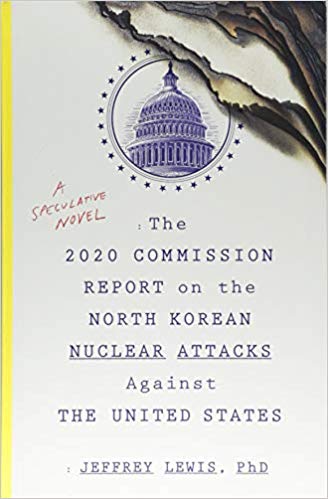
Spend $15 and read this book.
While trying to debug an ancient application that has been the undoing of just about everyone on my team, I've put these articles aside for later:
Back to the mouldering pile of fetid dingo kidneys that is this application...
I had thought about going to see the Chelsea v Bournemouth match at Stamford Bridge today, and even tried to get tickets online for weeks. But getting an English Premier League ticket when you're not a club member is a bit like trying to get a Yankees-Red Sox ticket at Fenway day of game.
I did, however, (a) see Stamford Bridge and (b) buy a shirt, so I feel a bit like I participated.
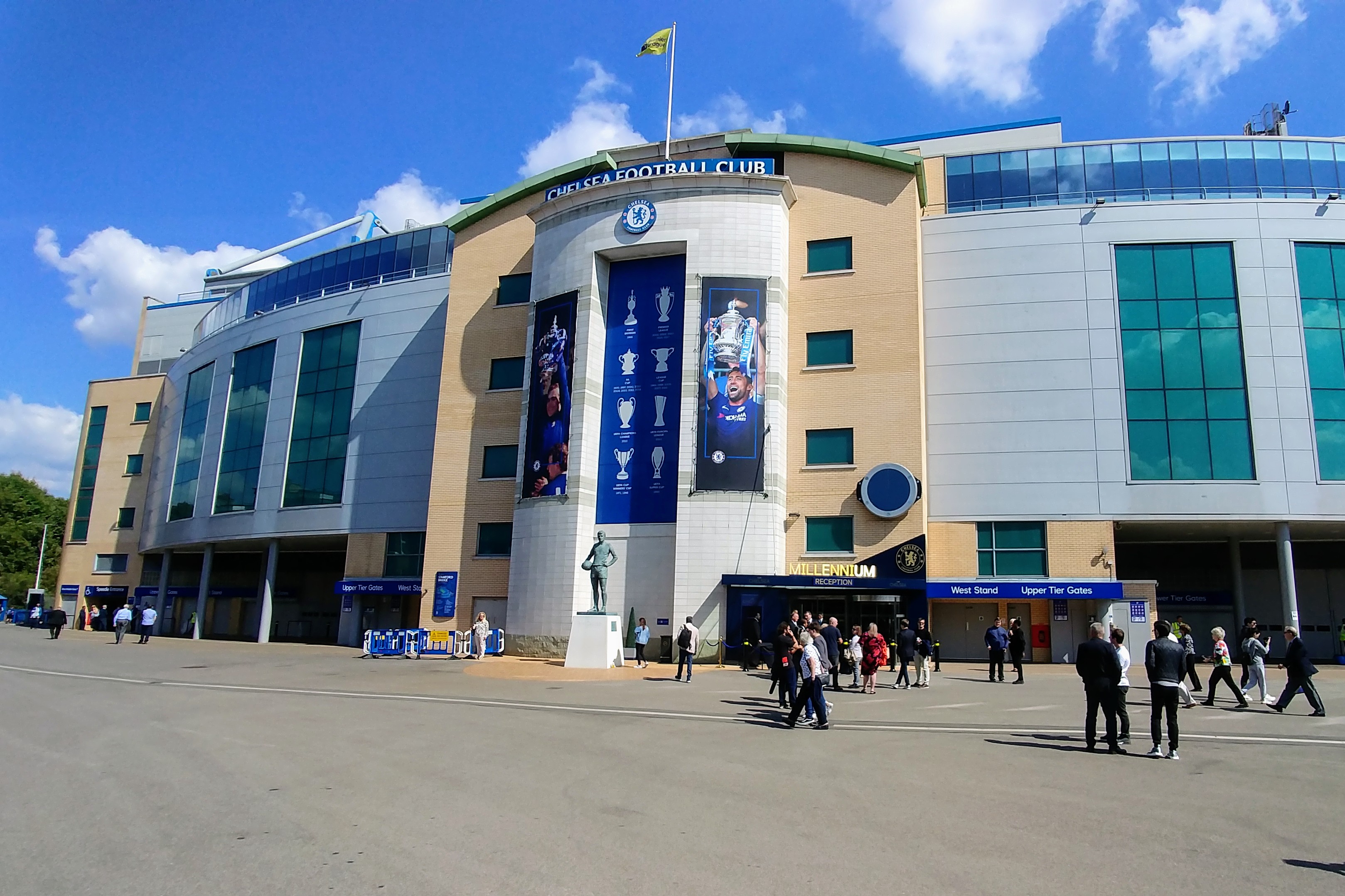
On the way back, I walked through Brompton Cemetery, which, like Graceland Cemetery back home, is something very close by that I haven't seen before. It was worth the detour:
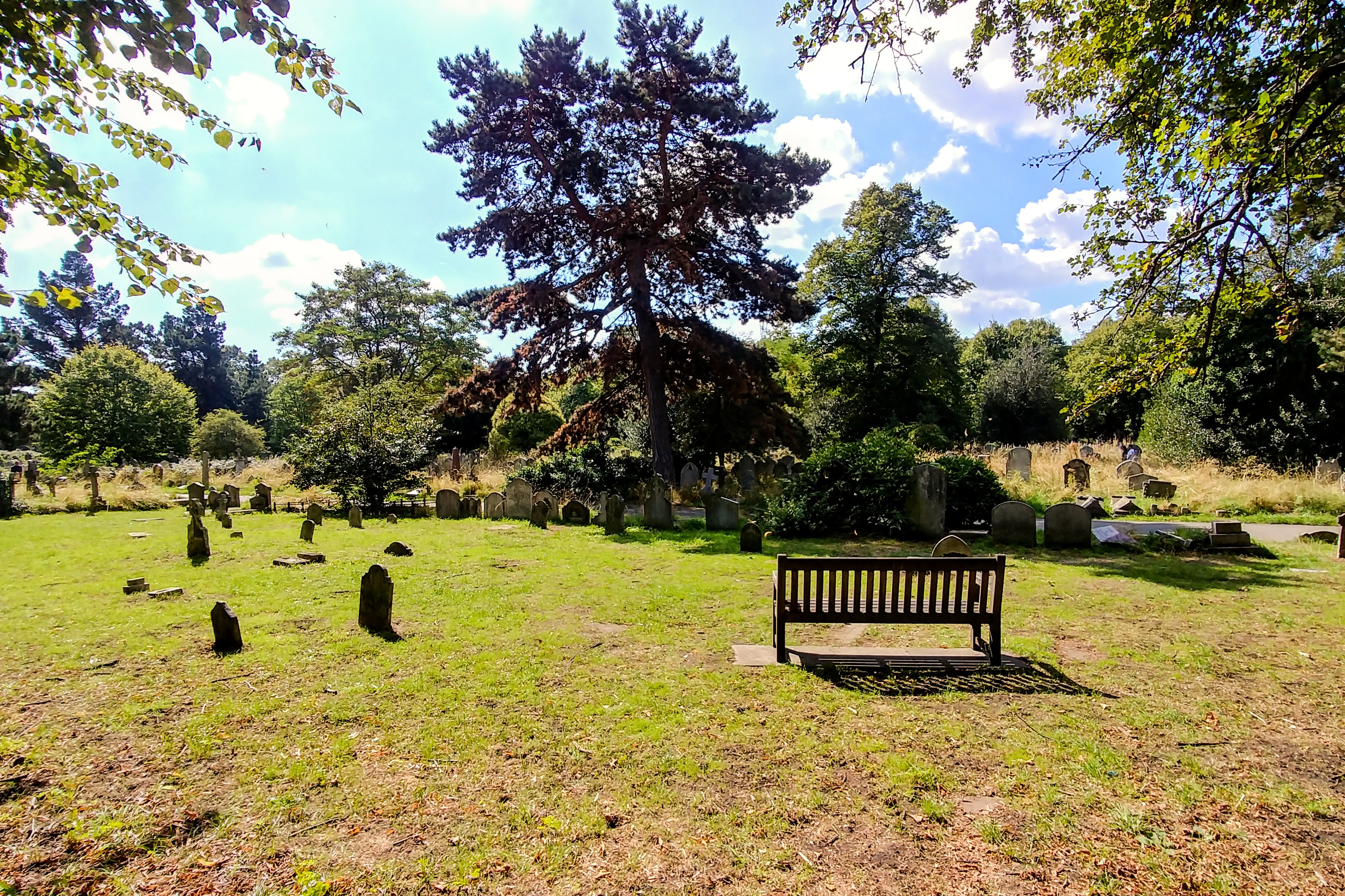
Note how not very green the place is right now. The UK really hasn't gotten a lot of rain this summer. It's quite grim.
I will now take a brief nap before heading out to Hampstead Heath on my way to Southampton Arms. And if my favorite pub in the UK is also closed, I will...go somewhere else, I suppose.
My strategy of sleeping until noon (i.e., 6am Chicago time) to avoid shifting my body clock didn't exactly work this trip. That's because, unfortunately, my hotel's air conditioning is being replaced. Fortunately I'm here now, when it's 23°C, not a month ago when it was 34°C. And fortunately, my windows open. That means I had the windows wide open last night, which, unfortunately, meant the sun poured in starting around 6am. Fortunately, I have this view:
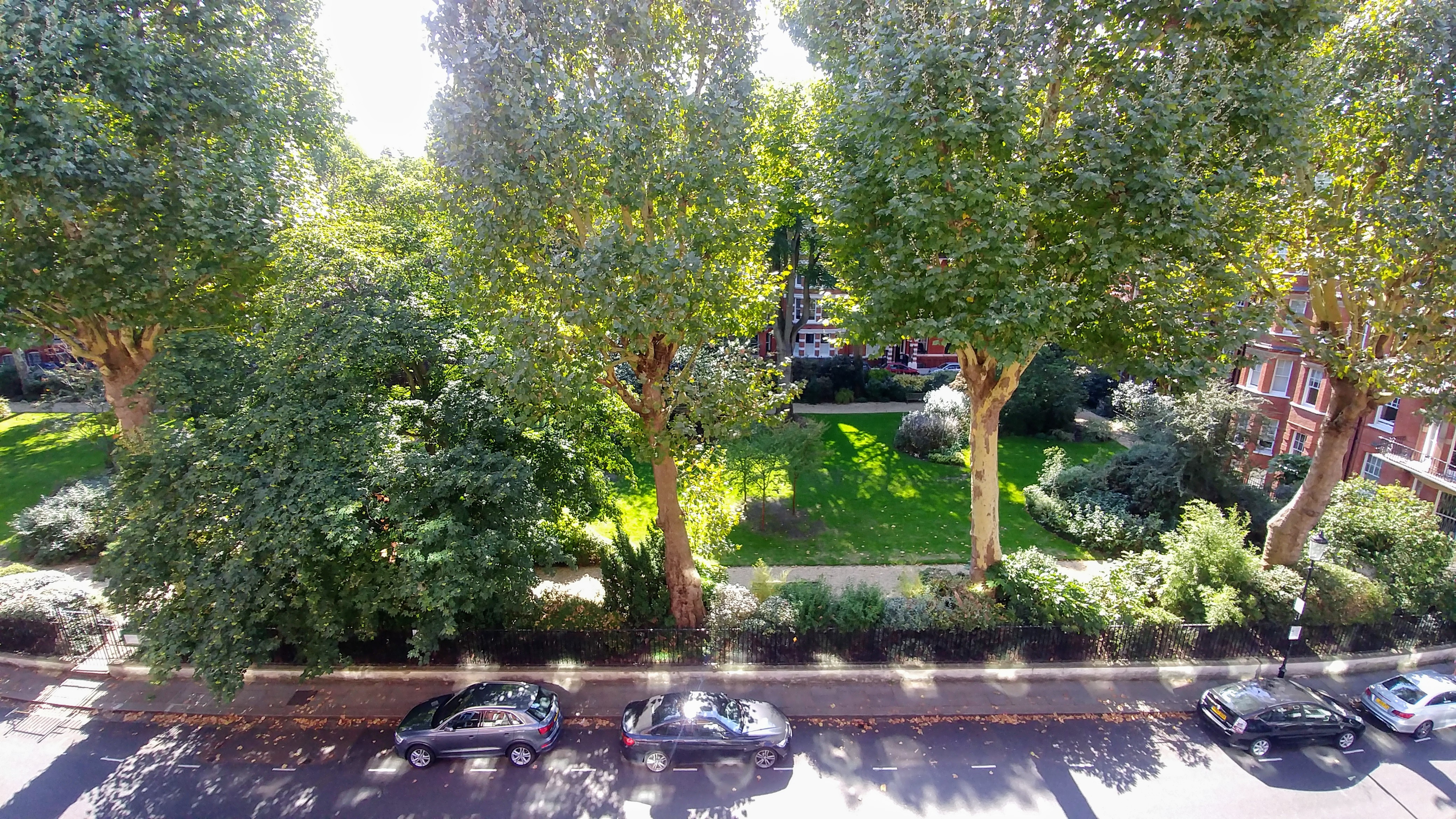
And the hotel left a couple of big fans in the room, fortunately.
Then, unfortunately, this terribly disappointing thing is also going on right now:
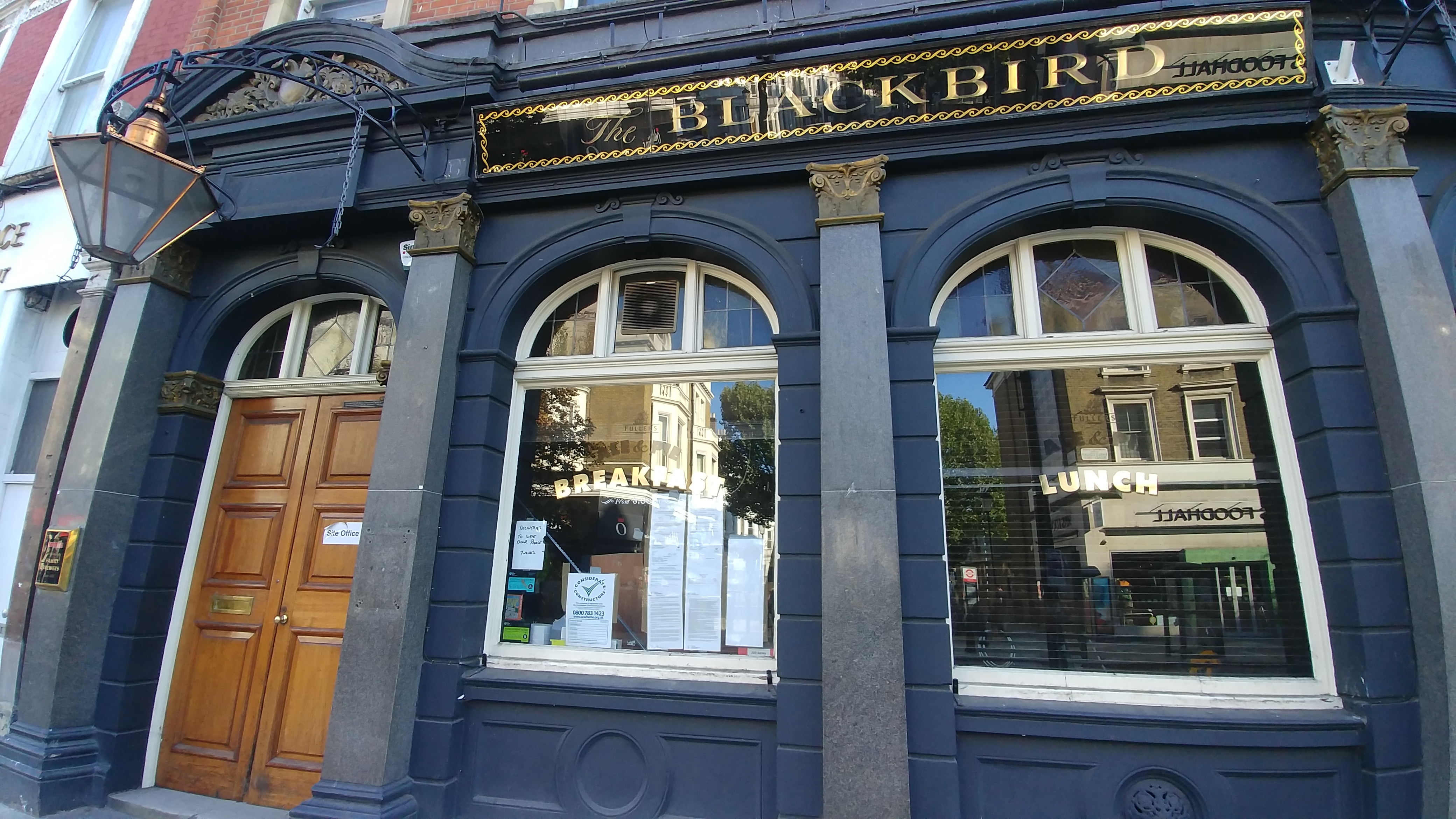
That's The Blackbird, my second-favorite pub in London, undergoing a gut rehab, apparently. It closed mid-July and won't open again until mid-October, according to my hotel's staff.
But fortunately, the Prince of Teck is just down the road a bit, and they have a pretty good Full English breakfast:
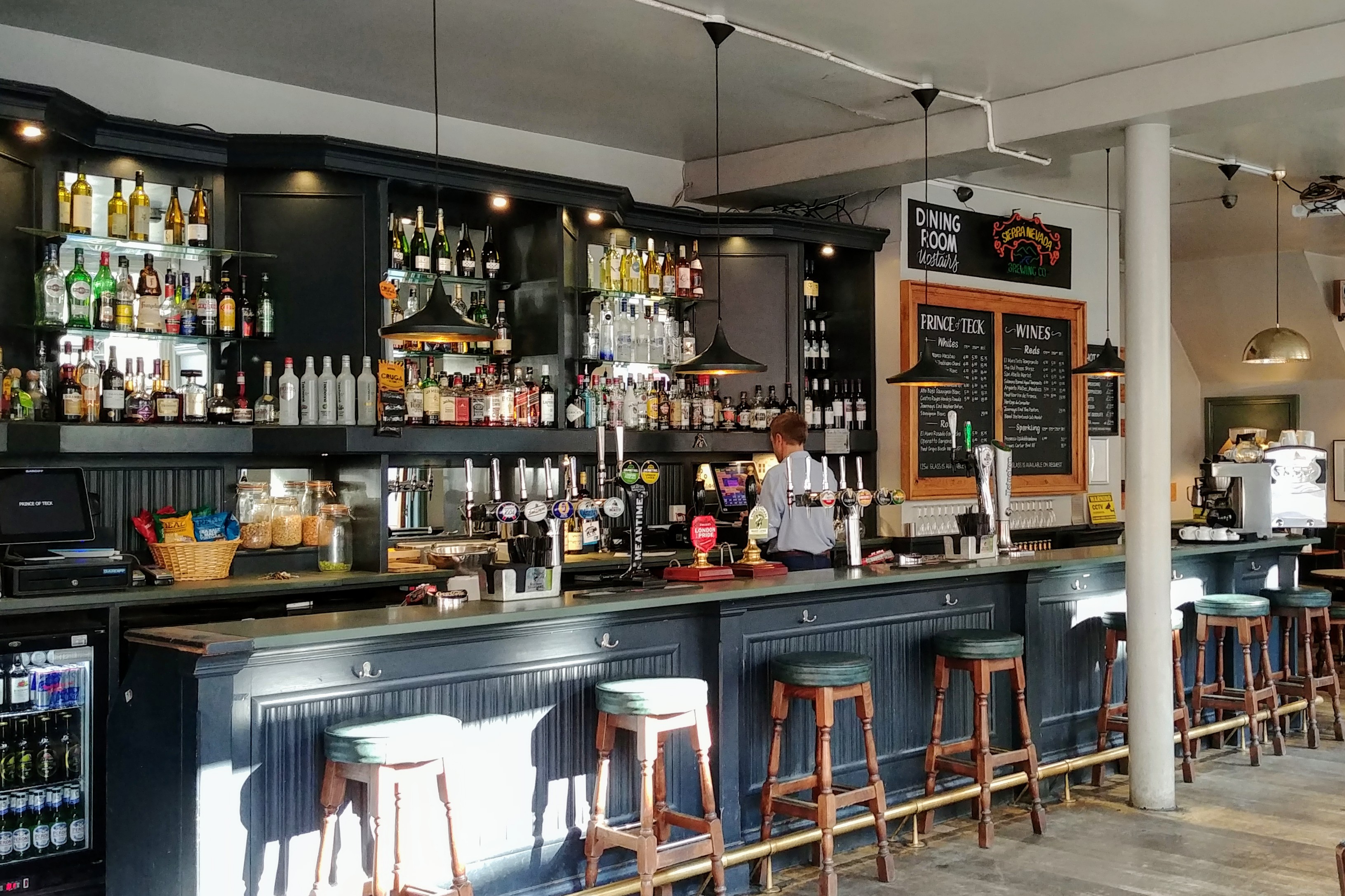
Now, having only gotten four hours of sleep last night, I'm going to have a kip. Because fortunately, I have absolutely nothing scheduled for today.